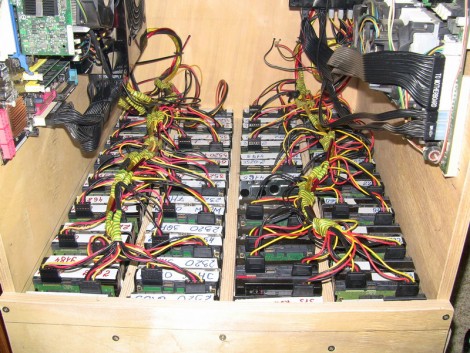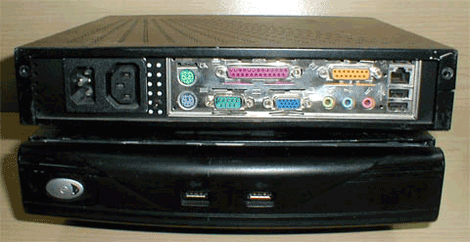
Why store it in the cloud when you could have a 90 Terabyte hard drive (translated) array in your house? The drives are mostly Western Digital Caviar Green EARS 2TB models which are known for energy efficiency and quiet operation. It’s a little unclear as to whether this is using one or two motherboards, but the drives are connected using PCI RAID5 and RAID5+0 controller cards. There’s a total of 40 cooling fans built into the case, half on the bottom and the rest on the top. They move air up through the case, with plans to add a dust filter in the future. Heck, with that type of air movement you could throw on a standard furnace filter. Apparently it is quiet enough to talk in “almost a whisper” while next to the plywood monolith. But we’re a bit skeptical of that claim.
It’s not quite as fancy looking as the 67 TB storage from last year… but it does look pretty easy to build at home.
[Thanks Henrique via EnglishRussia]















